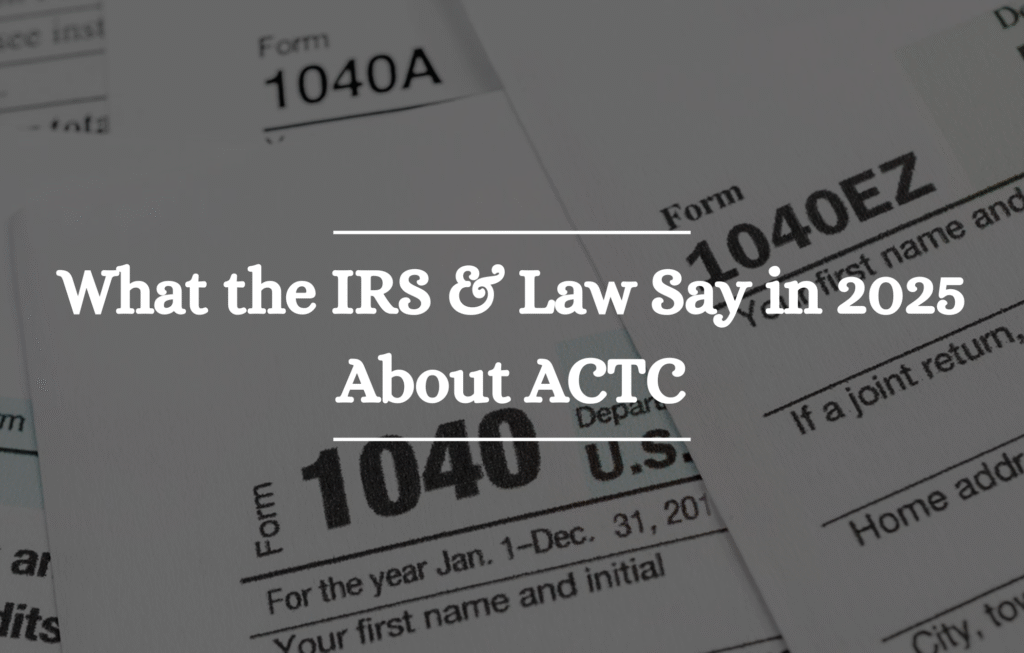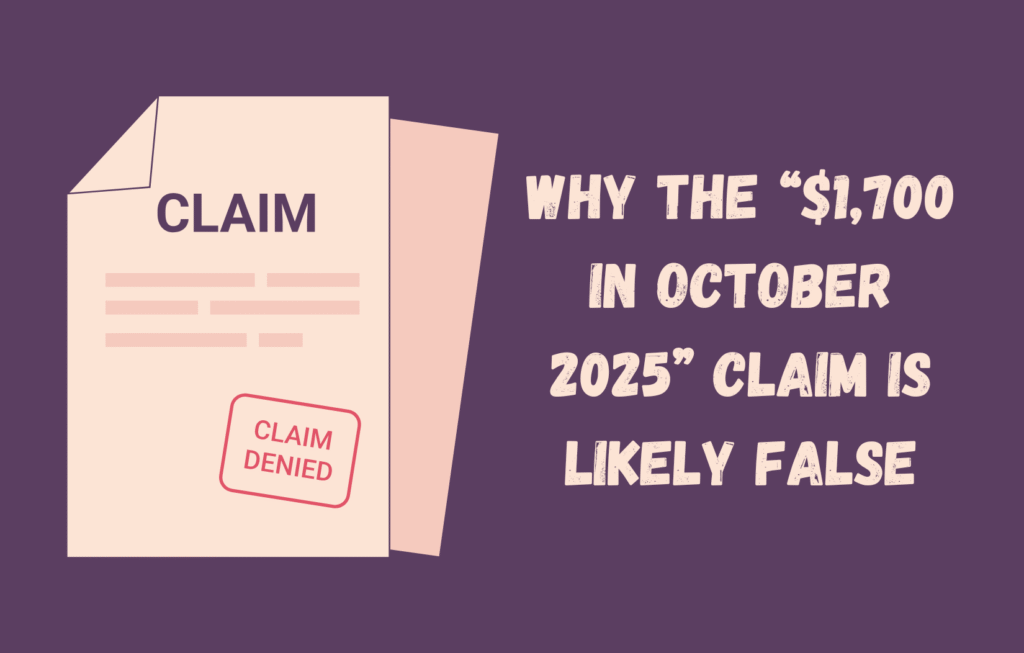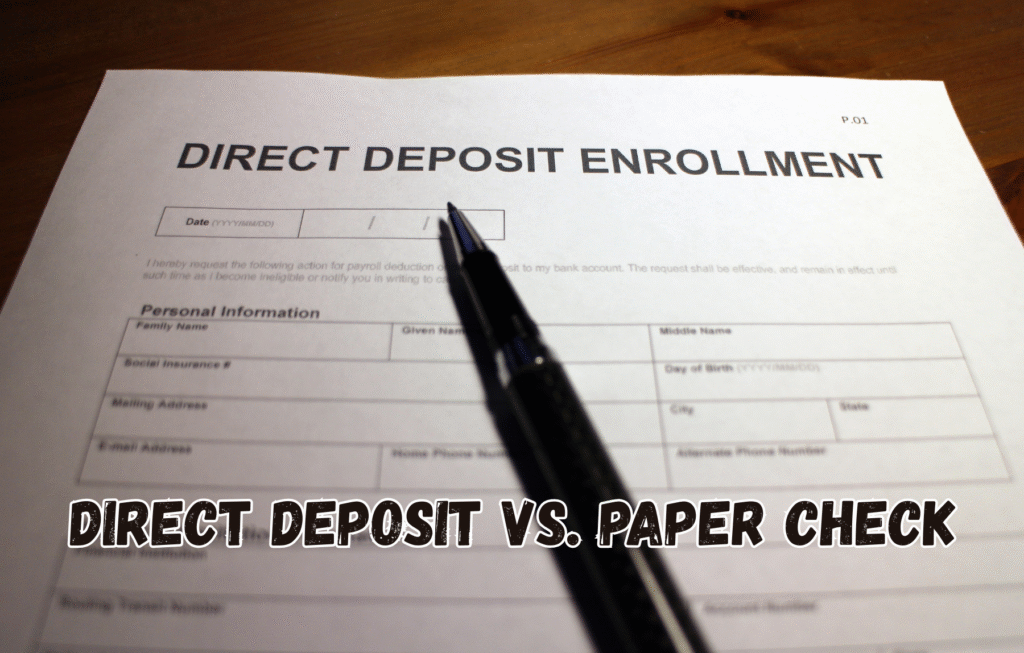What Is ACTC & Why the $1,700 Claim Is Circulating
“ACTC” refers to the Additional Child Tax Credit, which is a refundable portion of the Child Tax Credit (CTC) in U.S. federal taxes. In other words, if the usual child tax credit exceeds your tax liability, the ACTC allows you to receive a refund for some of the unused portion.
In recent times, various online articles and social media posts have claimed that a $1,700 ACTC payment will be issued in October 2025 to qualifying families. Some present this as an “advance” benefit or akin to a stimulus check. However, based on the most reliable sources and IRS rules, that claim appears to be false or misleading in its current form.
Some articles debunk the viral claim, noting that the ACTC program as an advance monthly payment ended in 2021 and has not been reactivated by Congress.
This article aims to:
- Clarify what the ACTC really is in 2025
- Explain the eligibility rules that do apply
- Describe how refunds are handled and when they can be paid
- Highlight why the $1,700 in October 2025 claim is likely erroneous
- Offer tips to safely track your tax credits
What the IRS & Law Say in 2025 About ACTC

Child Tax Credit vs. Additional Child Tax Credit
- The CTC is the main credit per qualifying child. In many years, part of that credit is non‑refundable—meaning it can reduce your tax bill but not go below zero.
- The ACTC is the refundable portion of the CTC, allowing you to receive money back even if your tax liability is zero or low.
In 2025, taxpayers may still claim the ACTC when filing a return for tax year 2024. For 2024, the CTC is up to $2,000 per qualifying child, and up to $1,700 of that may be refundable under ACTC rules.
However, it’s important to note: the ACTC is not an advance payment—eligible taxpayers claim it when submitting their tax return, often via Schedule 8812.
PATH Act & Timing Delays
The PATH Act (Protecting Americans from Tax Hikes Act) imposes restrictions on when refunds may be issued for returns claiming EIC (Earned Income Credit) or ACTC. By law, the IRS may not release those refund amounts until after February 15 of the filing year.
Thus, even if you e-file early, your ACTC or EIC portion may be delayed until mid‑February or later. Direct deposits typically begin shortly after February 15, and paper checks may follow a little later.
In prior years, many filers report that the IRS holds funds until after February 15 and then processes refunds rapidly—some getting direct deposits within days of approval. So in 2025, expect ACTC refunds to follow a similar calendar: after mid-February, and not earlier.
Why the “$1,700 in October 2025” Claim Is Likely False

Several red flags cast doubt on the claim that an automatic $1,700 ACTC payment will be made in October 2025:
- No known legislation or IRS announcement
The IRS has not announced any restoration of advance ACTC payments. The program that distributed monthly advance child tax credits during 2021 was a temporary pandemic-era measure and was not extended by Congress. - Viral articles themselves admit to being false
Many articles analyzing the claim point out it is completely incorrect and that the $1,700 monthly/advance scheme is not in effect. - ACTC is not structured as a recurring cash payment in 2025
Under current law, the ACTC is applied during your tax return. You don’t receive it as a scheduled monthly or one-time payment. - Timing issues and fraud risk
The $1,700 figure is likely conflated with the maximum refundable credit (for 2024). Fraudsters may be promoting it to trick taxpayers into sharing personal or banking information.
In short: there is currently no credible basis for expecting a guaranteed $1,700 “ACTC payment” in October 2025.
True Eligibility Rules for ACTC in 2025 (for Tax Year 2024 Returns)
If you want to benefit from the ACTC, here are the real eligibility conditions:
Qualifying Children

- Must be under age 17 at the end of 2024
- Must be your child, stepchild, foster child, sibling, or descendant thereof
- Must have lived with you for more than half the year
- Cannot have provided more than half their own support
- Must have a valid Social Security Number (SSN) by filing time
Taxpayer Requirements
- You must have earned income (wages, self-employment) of at least $2,500
- Your Adjusted Gross Income (AGI) must not exceed phase-out limits:
- For married filing jointly: up to roughly $400,000
- For single filers: up to roughly $200,000
- Beyond those income limits, the credit amount begins to reduce
- You may not file as Married Filing Separately if claiming ACTC
- You cannot claim ACTC if you file certain forms like Form 2555 (for foreign earned income)
If you meet all conditions and file correctly (including Schedule 8812), you may receive ACTC as part of your refund.
If you already filed your 2024 return and did not claim ACTC, you may be able to amend using Form 1040-X and include Schedule 8812 to claim it retroactively (before the statute of limitations expires).
When & How Refunds (Including ACTC) Will Be Paid
Payment Timeline & Schedule
- Tax season for 2025 generally begins late January or early February
- IRS cannot issue refunds involving ACTC before February 15 due to PATH Act rules
- After February 15, the IRS typically issues direct deposits first, followed by paper checks
- Many taxpayers report ACTC refunds arriving in late February to early March if there are no errors
- If you file later (or use paper returns), the schedule may shift accordingly
Thus, “October 2025” is not consistent with how ACTC refunds are processed.
Direct Deposit vs. Paper Check

- Direct deposit is the faster and safer option and is strongly recommended
- Paper checks may take extra days or weeks, depending on postal service
- Ensure your banking information is accurate and current when you file
Tracking Refund Status
You can monitor your refund and ACTC status via official IRS tools:
- “Where’s My Refund?” tool on IRS.gov
- IRS2Go mobile app
These tools will indicate statuses such as Received, Accepted, and Sent.
Practical Takeaways & Guidance for Taxpayers
- Don’t plan for a guaranteed $1,700 payment in October 2025
That claim is not backed by any credible legislation or IRS policy. Treat it skeptically and verify via IRS sources. - File your tax return correctly and on time
If you’re eligible for ACTC, file using Schedule 8812 and ensure all dependent and income information is accurate. - Use direct deposit
It speeds up your refund and avoids postal delays and loss risks. - Track refund starting from mid-February
Because of the PATH Act, refunds including ACTC won’t start before February 15. - If you missed claiming ACTC, consider filing an amendment
You may use Form 1040‑X within the allowable amendment period to request ACTC inclusion. - Beware of scams or phishing about “advance payments”
Never trust unsolicited emails, texts, or calls purporting to accelerate your ACTC. Always use IRS.gov and authenticated channels. - Stay updated
Tax rules can change. Keep an eye on IRS announcements, Congressional tax proposals, and verified tax news outlets.
Short Summary
- The $1,700 ACTC “October 2025 payment” is almost certainly false or misleading
- The ACTC is a refundable portion of the Child Tax Credit claimed with your tax return (via Schedule 8812), not a scheduled advance payment
- The PATH Act requires IRS to delay refunds involving ACTC until after February 15
- To receive ACTC, meet eligibility rules: qualifying child, earned income ≥ $2,500, below income limits, valid SSN, etc.
- Refunds (once processed) are issued by direct deposit or check; use IRS “Where’s My Refund?” to track
- If you missed claiming ACTC, you may file an amended return to include it—if you’re still within the allowable timeframe
FAQs
1. What is the ACTC in 2025?
The Additional Child Tax Credit (ACTC) is the refundable portion of the Child Tax Credit, claimed through your tax return if your credit exceeds your tax liability.
2. Is there really a $1,700 ACTC payment coming in October 2025?
No. The claim is false. The IRS has not announced any October 2025 ACTC payment. ACTC is claimed through your tax return, not sent as an advance.
3. How much is the ACTC worth in 2025?
For tax year 2024, up to $1,700 per qualifying child may be refundable through ACTC, depending on your income and eligibility. It’s part of the Child Tax Credit.
